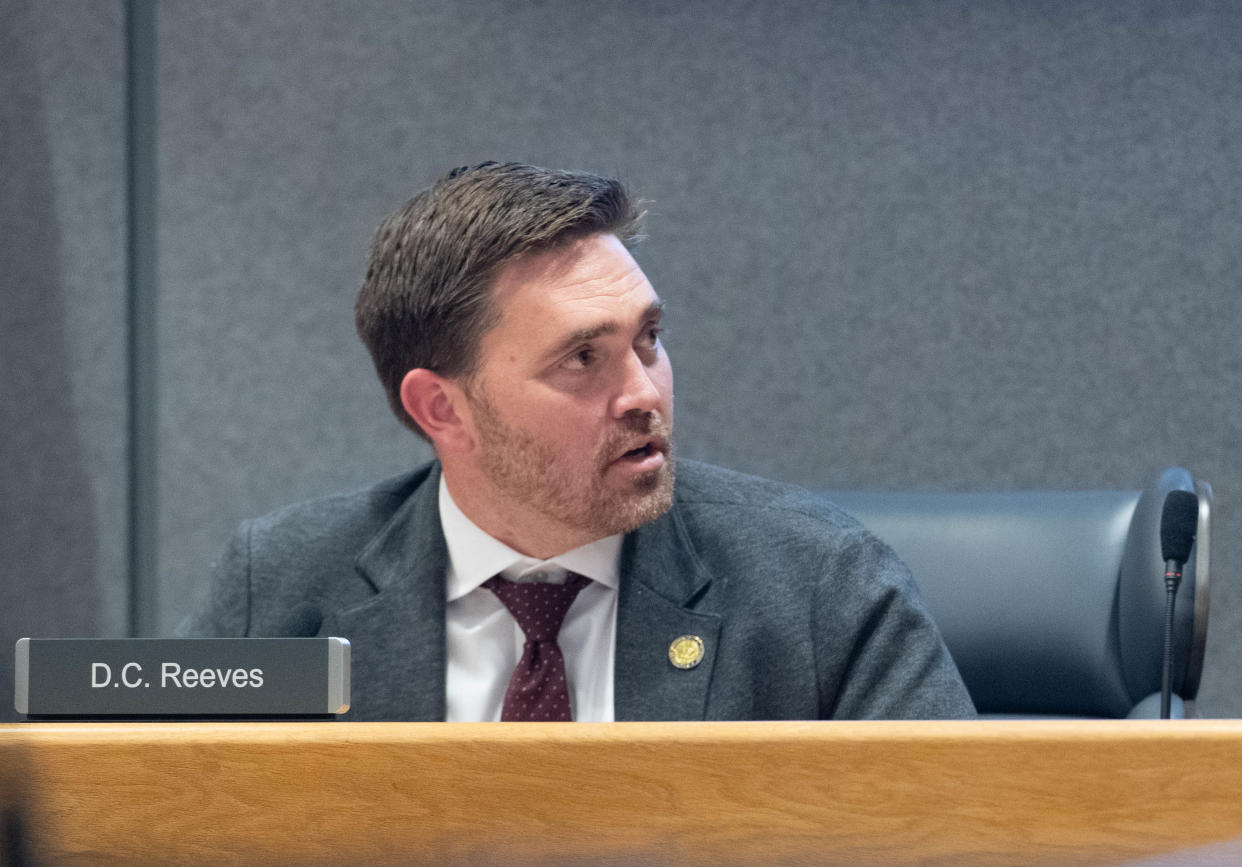Pensacola's plan for homeless help, new zoning regs will be paid for with federal funds

Pensacola will have exactly five months as of Wednesday to make any changes to its plan to spend $19.1 million in federal COVID-19 relief funds.
Pensacola Mayor D.C. Reeves is bringing an updated plan to spend the city's American Rescue Plan Act funds to the Pensacola City Council next week that will leave $1 million for homelessness reduction and $390,000 to fund a rewrite of the city's zoning laws.
Short-term solutions
The biggest question mark on the city's ARPA funds is the $1 million remaining for homelessness reduction.
Reeves was previously interested in using the funds to kick-start a low-barrier homeless shelter, but that idea was taken off the table earlier this year when a report from Jon DeCarmine, executive director of GRACE Marketplace in Gainesville, showed start-up cost would be between $2.19 million and $3.47 million.
Reeves said Monday he wants to use the funds to alleviate homelessness in the short-term while he looks for buy-in from other community and business leaders to help start a low-barrier shelter.
"That's going to take a significant lift and significant community conversation to get that low-barrier running functionally," Reeves said.
Reeves said he couldn't say yet what that "short-term" solution is yet, but it would have to be something that could happen quickly. The ARPA funds have to be "encumbered" or committed under a contract by Dec. 31.
"Pallet shelters would be an example of that, but we've got things to work through to make sure from a zoning perspective that that can be done," Reeves said. 'So I'm not going to commit to that yet, but it'll be something of that ilk."
One example of the pallet shelters Reeves is referring to is Tampa Hope in Tampa, which in 2023 opened 100 shelters that are essentially 64-square feet air-conditioned hurricane-rated sheds. Tampa's city government spent $750,000 to build 75 of the shelters, according to the Tampa Bay Times.
Reeves said he still believes a low-barrier shelter is what the community truly needs and is encouraged that some local non-profit homelessness service providers are more open to lowering the barrier to entry for their programs.
"We realized that at the barriers we are at right now in 2024, that may not solve our entire problem," Reeve said. "So if we can help, whether it be pallet shelters, whether it be housing, so whether it be funding, especially encouraging lowering some of those barriers, it's for initiatives like that."
Increasing housing supply with LDC rewrite
The other large change in the ARPA proposal is paying for a rewrite of the city's land development code.
Reeves is proposing the council approve a reallocation of $389,320 from mostly complete APRA funding projects to pay for the LDC re-write. There are two projects that would be canceled, one is about $40,000 for a cultural and historical affairs position in the city and the other is a $100,000 study of deferred park maintenance.
Reeves said the city budget will have about $1.6 million for deferred park maintenance that will be used to tackle the largest issues, and that he's open to the idea of full maintenance plan being included in a comprehensive parks master plan though no final decision has been made.
"Based on our research and what we know about what's going on in our parks right now, $1.6 million is a drop in the bucket of all the things that need to happen at our parks," Reeves said. "So we can kind of go forward pretty well educated on what's the top $1.6 million of use."
Reeves said he's moving forward with a land development code rewrite because it's been nearly 20 years since the city's last comprehensive re-write, and a lot's changed since then.
Reeves said he fully expects proposals to include adding more density to neighborhoods and people voicing opposition to the idea.
"Every mayor in the country is looking at every opportunity they have to increase housing stock and inventory, and this is one of the very common mechanisms that mayors are leaning on now, which is to say it's time to look at it," Reeves said. "…It will not be an easy process. There will be disagreements, 'not in my neighborhood, not in their neighborhood,' and we know that that's going to happen. But with the greater good of getting a land development code rewritten that meets the needs, meets the requirements of our city, and helping us alleviate some of the issues that we have, (it) is very, very necessary."
This article originally appeared on Pensacola News Journal: Pensacola looks to fund zoning rewrite and homelessness help with ARPA

